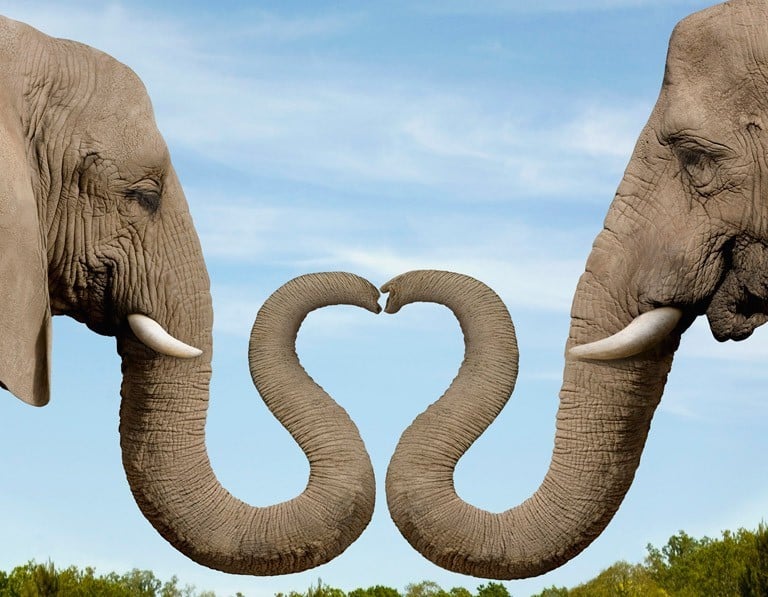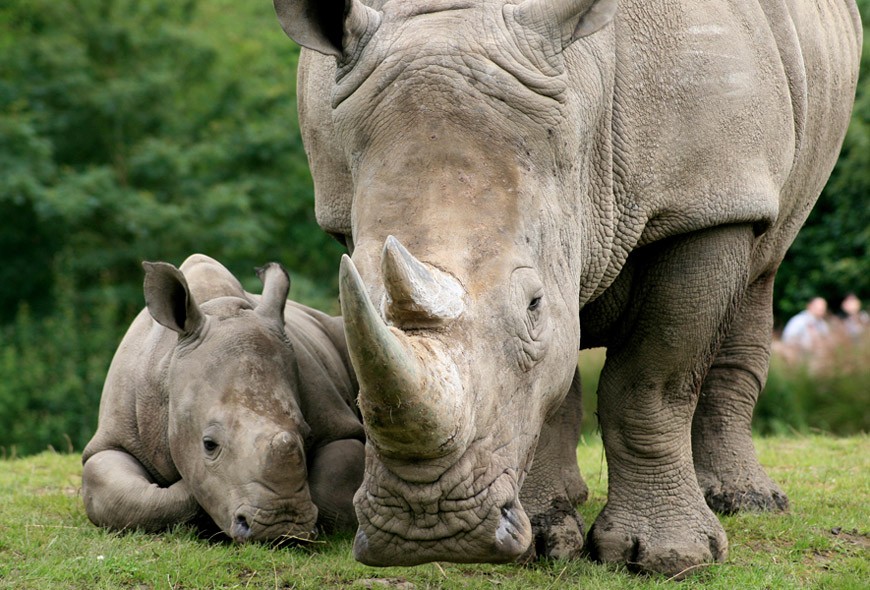The Importance of Fighting For Wildlife Conservation
According to the International Fund for Animal Welfare, an elephant is slaughtered every 15 minutes for the illegal ivory trade. By the time you finish reading this article, we may have lost another one. We need wildlife conservation efforts now more than ever.
Elephants aren’t the only victims of inhumane killing for illegal trade purposes or trophy hunting. Lions, rhinoceroses, tigers, great apes, sharks and even a range of fish, birds, plants and timber are being exploited for such reasons.
At the rate these animals are being killed they’re headed toward extinction, and sadly, a lot of the killing that’s done is completely legal.
How Much Damage Has Been Done?
In the past three decades, the number of African lions has declined by more than 50 percent, with 32,000 or fewer believed to be alive today. A mere 5,000 black rhinos and 3,200 wild tigers exist. There is less than a half million elephants roaming the wild, and although that number may not sound as breathtaking, it pales in comparison to the 7 billion humans on Earth.
There’s been a whopping 7,700 percent increase in rhino poaching in South Africa just from 2007-2013. On the other hand, we have a 99 percent decrease in the hammerhead shark population in the Mediterranean. See the trend?
Unfortunately, Americans play a huge role in this problem. Out of all the lions killed for sport in Africa, approximately 60 percent are shipped to the U.S. as trophies. African lions are the only big cat currently unprotected by the Endangered Species Act. It’s extremely hard to obtain funding for the protection of African lions because as long as a wealthy hunter can pay to hunt them, people are more reluctant to spend their money on an animal that can be legally killed.
Recent media outrage over Dr. Walter Palmer, a dentist from Minnesota who killed Cecil the lion a cherished and collared Zimbabwe tourist draw has sparked anger from animal rights activists and opened the eyes of people who were previously unaware of the growing issue. Palmer paid local guides $50,000.00 for the experience of hunting a lion with a crossbow, and claims he regrets his actions after news of the animal’s death went viral and threats from wildlife conservation advocates came with a vengeance.
Can Hunting Help For Wildlife Conservation?
Contrary to the claims that hunters are helping endangered species by killing certain members of the pack for conservation, that is not the case.
Many hunters say that by taking out the dominant male lion they are helping the species diversify, but when an adult male is killed, outside males compete to take over the pride of the pack which leads to more deaths. Even worse, once a new male takes over the dominant position, he will often kill all of the previous leader’s cubs, which takes out an entire lion generation.
https://www.youtube.com/watch?v=43-mOSdPuzo
Large, dominant males are the most sought after by trophy hunters, but killing them is counter-evolutionary. These males would live long, healthy lives mating and protecting their cubs, contributing the strong genes to future generations.
Another false claim made by trophy hunters is that their hunting brings millions of dollars in revenue to the poor communities in Africa. This claim is unsupported as pro-hunting organizations such as the International Council for Game and Wildlife Conservation have admitted that only 3 percent of revenue from trophy hunting actually goes to the rural communities affected by it.
The most money that Africa earns is through tourism. If hunters are killing the animals that tourists are coming to see, Africa will suffer financially and trophy hunters will ultimately cripple Africa’s tourism goals. The money derived from hunting is insignificant compared to the billions generated from wildlife tourism.
When the Hunting Becomes Illegal…
While hunting may be legal in some circumstances, it’s certainly not ethical. However, there are also the cases of illegal hunting for trade purposes. Elephants and rhinos are the biggest victims of this as they are hunted for their ivory.
The main market for the rhino horn is currently in Vietnam where there are many mistaken beliefs that lead to this illegal trade. At least two rhinos are killed every day because of the belief that rhino horn can cure diseases, such as cancer. Rhino horn is also used in other Asian medicine to treat fevers, blood disorders, and even as a treatment for a hangover. It’s a disheartening realization that the lives of an endangered species are being taken when water and Advil could do the trick.
The human desire for ivory is more of a selfish one. From jewelry and trinkets to piano keys and religious art carvings ivory is largely being used for items that could use alternative materials. Is the life of an elephant really worth a few necklaces and bracelets?
Animals who are less exploited, such as lions and tigers, are hunted and then skinned for their fur. Nevertheless, even though the numbers aren’t as striking as the numbers of elephants and rhinos that are killed, it is still a dire issue.
The illicit wildlife trade is the fifth most profitable trade in the world, raking up an estimated $10 billion annually. The demand for the goods and the profits made are simply reasons for those involved in the illegal trade to continue. It’s time for wildlife conservation efforts to overthrow this booming trade.
How To Join The Fight
So, you want to join the fight, but don’t have the time or money to fly out to Africa and save the animals firsthand. It’s easier than that.
We need to recognize the African Game Rangers. These are men and women who play possible the most important role in protecting African wildlife and the natural habitat. Rangers in nature reserves such as the Masai Mara Reserve are even ordered to prioritize the lives of endangered species over man, and to immediately kill a poacher if spotted without hesitation.
Rangers usually earn very little and can go months without receiving their salary or being able to spend time with family. However, their passion for promoting the best practices to ensure the conservation of endangered species drives their motivation to protect.
Join the World Wildlife Fund’s Back A Ranger project (WWF). This program ensures that 100% of your donation will benefit rangers to get the training, resources and equipment they need to stop wildlife crime.
Also, make sure that you’re purchasing sustainable wildlife goods. You can make sure of this by checking what the Marine Stewardship Council (MSC) and the Forest Stewardship Council (FSC) have certified. If you help reduce the demand for illegal wildlife products, the trade will inevitably decline.
Finally, take a stand and sign WWF’s pledge to stop wildlife crime.
The world is facing a loss of its biodiversity if we continue to allow trophy hunting and trade of African wildlife. The overexploitation of species can affect the planet in more ways than another animal being added to the “extinct” list. We have an ecosystem that we need to sustain, and we have to do so through wildlife conservation.












